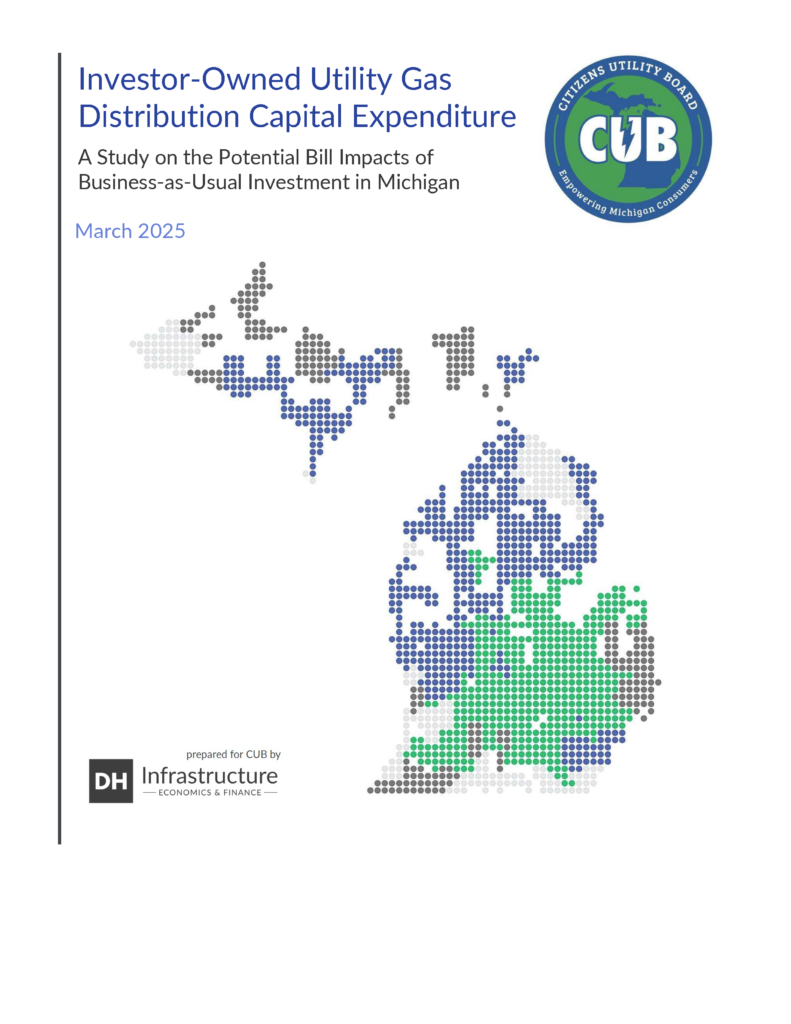Michigan’s gas utilities have dramatically accelerated their infrastructure investments over the past decade. Combined annual capital expenditures by the state’s three largest gas utilities—Consumers Energy (Consumers), DTE Energy Gas Company (DTE), and SEMCO Energy Gas Company (SEMCO)—have tripled, growing from $578 million in 2013 to $1,739 million in 2023. The scale of these annual investments is striking: the utilities now spend more on gas infrastructure each year than Detroit’s entire annual capital budget ($650 million) and nearly fifteen times more than what has been spent to date addressing the Flint water crisis ($116 million as of 2024).
This study evaluates the long-term implications of this investment trajectory by analyzing these utilities’ existing capital investment plans and estimating how their planned investments could affect residential gas customer bills through 2050. The analysis employs a three-step approach:
- Projecting future capital expenditures and rate base through 2050 based on published utility investment plans and historical trends
- Calculating annual revenue requirements needed to recover these investments
- Translating revenue requirements into projected base rates and typical residential customer bills
The projections represent a “business-as-usual” (BAU) scenario, assuming utilities maintain their current investment approaches, with stable customer bases and consistent gas sales.

